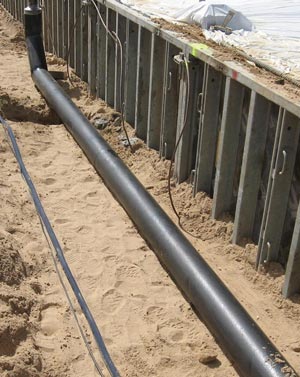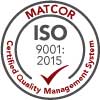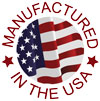Benefits of Impressed Current Cathodic Protection (CP) Systems

When protecting large or high-risk metal structures from corrosion, impressed current cathodic protection (ICCP) systems offer significant advantages over traditional galvanic (sacrificial) anode systems.
This article explains how ICCP works, its key benefits, and when it’s the right choice for your corrosion prevention needs.
What is Impressed Current Cathodic Protection?
An impressed current cathodic protection (ICCP) system uses an external power source—typically a rectifier—to deliver a controlled protective current to buried or submerged metal structures at risk of corrosion.
Unlike galvanic systems, which rely on the natural potential difference between metals, ICCP systems generate much higher levels of protective current. This makes them suitable for larger structures and more challenging environments.
Explore cathodic protection systems.
Why Choose ICCP Over Galvanic CP?
Here are the key reasons why engineers and operators often choose ICCP systems for critical infrastructure projects:
1—Higher Current Capacity
ICCP systems deliver much higher protective current than galvanic systems—making them ideal for:
- Long-distance pipelines
- Large storage tanks
- Offshore platforms
- High-resistivity soils or aggressive environments
Because the system uses external voltage (typically 20–100V), it can overcome higher resistances and protect larger surface areas.
2—Greater System Control
One of ICCP’s biggest benefits is precise control over current output. Operators can easily adjust the rectifier settings to respond to changing conditions or performance data. Benefits of this include:
- Avoiding overprotection or underprotection
- Optimizing current levels based on monitoring feedback
- Extending anode life through efficient operation
3—Longer-Life Anodes
ICCP systems use durable, long-lasting anode materials such as Mixed Metal Oxide (MMO), which offer:
- Lower consumption rates
- Reduced replacement frequency
- Lower long-term maintenance costs
By choosing the right anode type and system design, operators can achieve decades of reliable protection.
4—Ease of Monitoring and Performance Tracking
ICCP systems provide built-in monitoring at the rectifier, making it easy to track performance and ensure effective protection. Features often include:
- Monthly voltage and current readings
- Baseline comparisons
- Integration with remote monitoring technologies
- Fast identification of system issues
This real-time monitoring is a significant advantage over galvanic systems, which require more effort to measure performance.
When is ICCP the Right Choice?
ICCP is the recommended solution when:
- Your structure is large, complex, or high-risk
- The environment has high soil or water resistivity
- Precise control over protective current is needed
- Long service life with minimal maintenance is a priority
Looking for alternatives to ICCP systems? Explore our galvanic anodes.
Need Help Choosing the Right CP System?
If you’re evaluating ICCP vs. galvanic systems, or if you’re unsure which solution fits your project, MATCOR can help.
We offer full design, manufacturing, and installation services for impressed current CP systems
Contact us at the link below to find out if an impressed current cathodic protection system is right for your application.
Contact a Corrosion ExpertLearn about the best cathodic protection controllers for impressed current CP systems from our partner JA Electronics.






